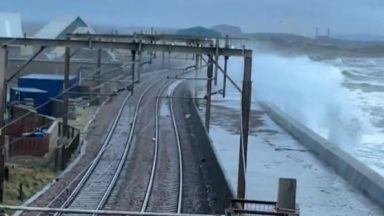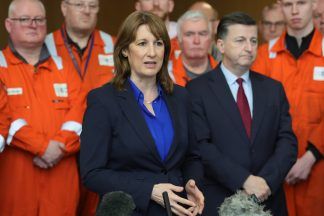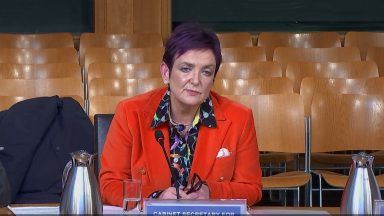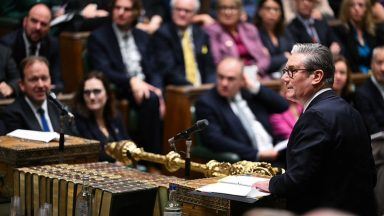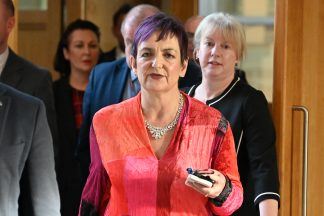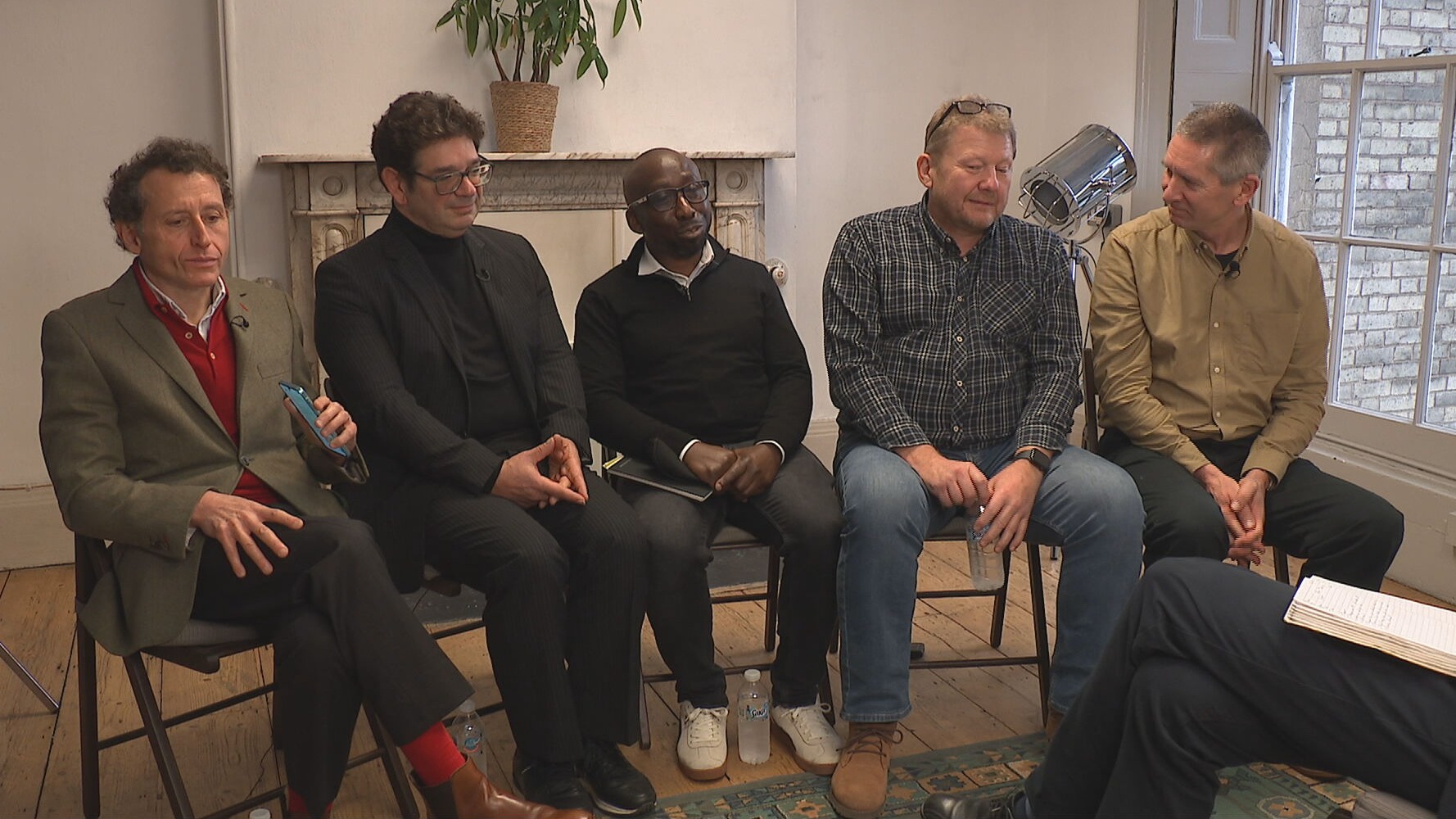As the final strains of Auld Lang Syne greeted 2022, there must have been a sense that, after two years spent largely in lockdown, the new year would bring a return to normality.
Some normality, some new year.
This year waved a definitive goodbye to life in the deep freeze of the pandemic, only for a cost of living crisis to shout an unwelcome hello. It continues to shout and threatens to deafen in 2023.
At times the politics of the banana republic has seemed more stable than that of the United Kingdom.
It started with a censure (in draft) from Sue Gray over prime minister Boris Johnson’s breach of lockdown rules, those casual acts which seemed harmless enough, but which spoke volumes to the arrogance of a man who dragged his office to the gutter and then decided on another party once he got there.
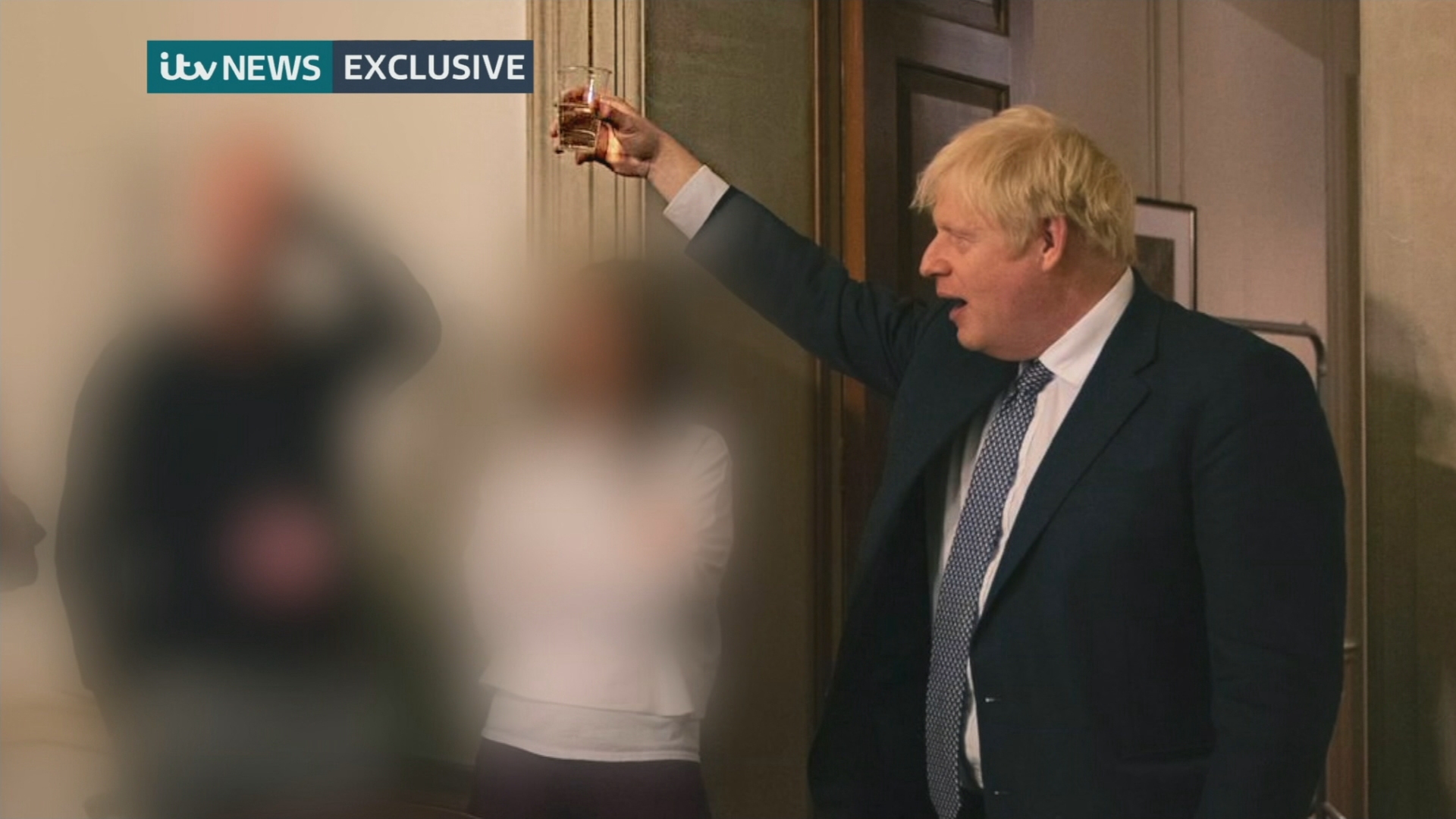 ITV
ITVPeople, separated from loved ones as they lived their last breath, could barely conceal their contempt for the pantomime premier, a man who could wear a countenance of shame but demonstrably could not feel it, otherwise he would have done the only decent thing and resigned.
Sure, he went in the end. The people who put him there attempted to save themselves from their own judgement.
Johnson clawed and scratched to save his job, to nut his opponents with the enormity of his own ego. In the end, even his ego wasn’t big enough to scope the sheer vastness of the people who wanted him gone.
Instead, they helped propel Liz Truss to the top job in yet another example that the biggest enemy of Conservative MPs is the choices they help make.
Truss defeated Rishi Sunak for the top job, thereby re-defining the rule book that it is perfectly possible to win a popularity contest without the aid of a personality.
Sunak’s crime in the minds of Tory members was to hike taxes. She was a low tax, small-state Conservative.
She was carried into Downing Street on a near hysteria to be bold in dismantling a social democratic consensus which turned to government at every turn to bail the country out of every problem.
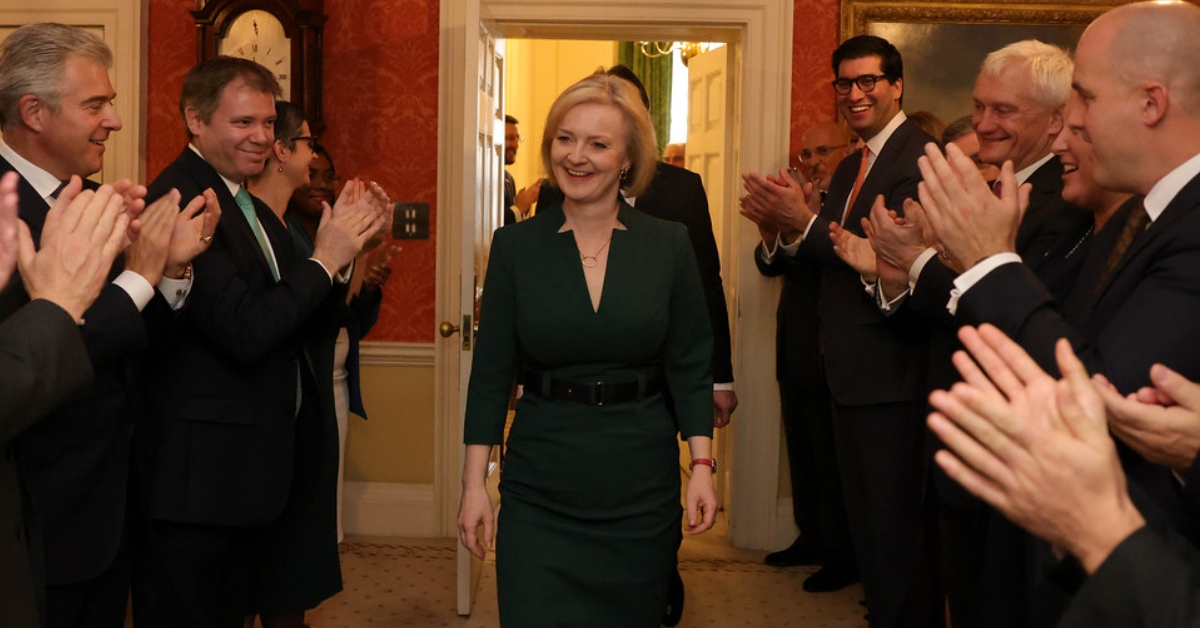 Flickr
FlickrBut this rabbit-in-the-headlights premiership became the shortest ever.
She bowed her knee to the capitalist god without ever understanding how it works. Governments are not sovereign when the markets decide your economic policy lacks credibility.
And so, the Tories ended up back where they started in policy terms. A hike in taxes from Rishi Sunak, although this time he made his bed in Number 10, not 11 Downing Street.
A high-speed choreography of the shambles could have been set to Yakety Sax or, as you may know it, the theme that finished the Benny Hill show, as he ran around frantically in search of a bottom to pinch.
In the chaos, policy in dealing with the cost of living crisis bounced around in search of a steady hand and a steadier mind.
2022 was the year that the Tories gave you higher taxes and then cancelled them, only to bring them back in a new, more aggressive form.
It was the year when households were told help with energy bills would last two years. Then they changed their mind.
It was the year too when they caused a run-on pension schemes and forced the hand of the Bank of England, which duly obliged with mortgage misery for millions.
Theresa May and Boris Johnson had previously announced that austerity was dead. Rishi Sunak and Jeremy Hunt didn’t get the memo and, in the greatest rising since Lazarus, it came back with a vengeance.
Ordinary folk, squeezed by a decade of austerity courtesy of the Conservatives and the Liberal Democrats (how quickly THEY forget), now face further squeezes in household income in an age of soaring inflation.
If the bankers created the financial earthquake of 2008 and inertia in Threadneedle Street on taking their inflation target seriously helped fuel the crisis of 2022, then once again it is the worker who is asked to make sacrifices.
The problem is that the sheer hellishness of what some households are facing has led to largely a-political people deciding that enough is enough.
2022 was the year that politicised those who just wanted to get on with their lives and pay their bills. At the prospect that they can’t do the responsible thing because they don’t have the money, they have decided to withdraw their labour.
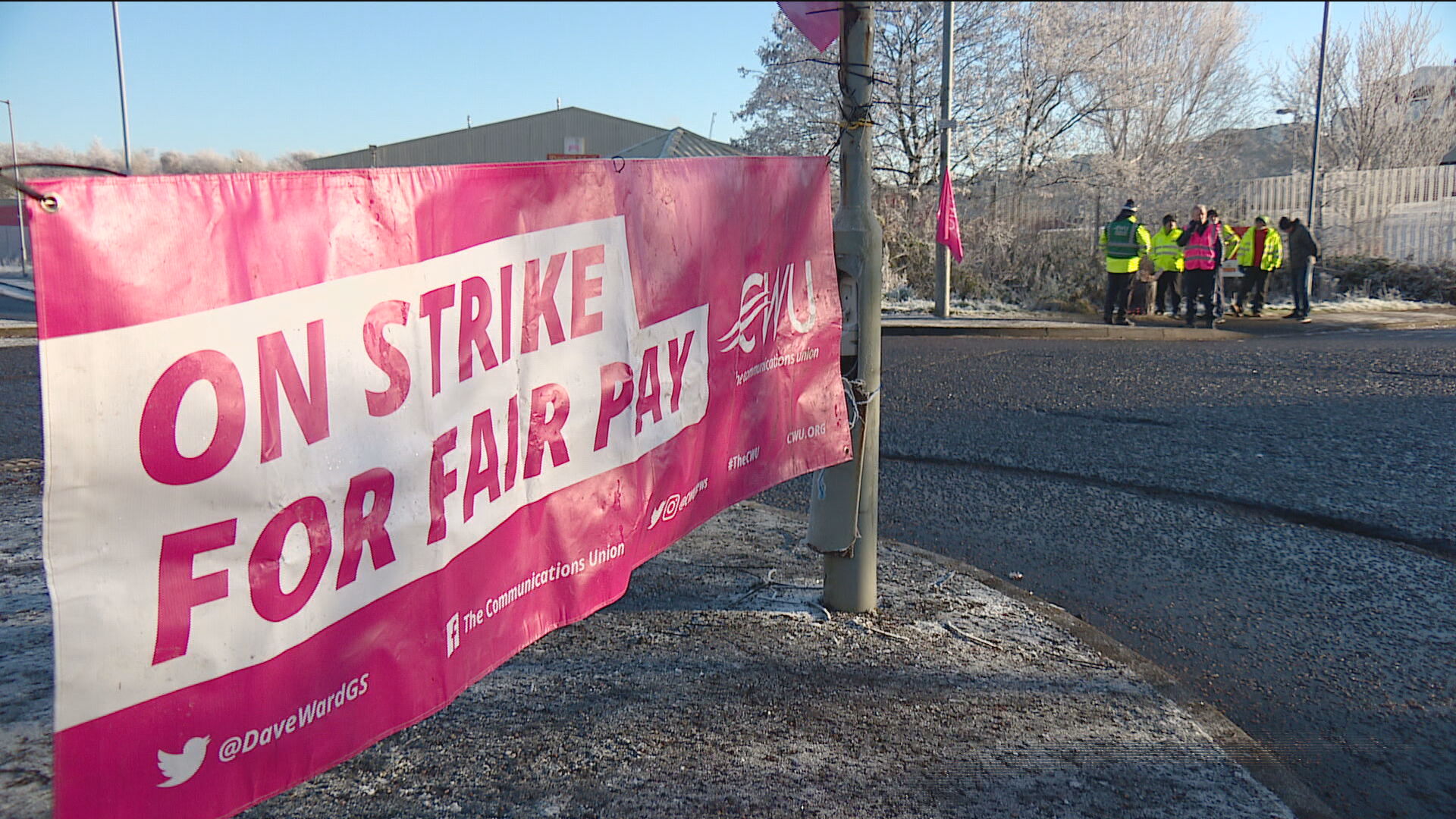 STV News
STV NewsOn cue and in search of any desperate issue with which to divert from their own culpability, minsters play the union bogeyman card, the militant’s jibe, the politically motivated men and women, as they were called in the 1970s.
Now some of these minsters are too young to remember the 1970s. I’m not. The comparisons are absurd.
Some going on strike for the first time ever or the first industrial action in a sector in 40 years is not the industrial relations of the 1970s.
What absolutely is the politics of the 1970s is the way Conservative ministers jump enthusiastically on a bed hoping to crush the reds who lurk beneath it.
Closer to home, the Scottish Government continue to grapple with and largely fail to deal with problems on their patch.
Just about everything in the NHS is not functioning as it should. Waiting times, ambulance response times, A&E waits, bed blocking, waits for routine operations, NHS dentistry, availability of social care places. It goes on and on and it amounts to comprehensive failure.
That failure was there before the pandemic, and it is even more acute as we come out of it.
Problems too in education – and don’t mention the ferries…
On second thoughts, do mention the ferries.
Hundreds of millions squandered and not a single resignation, a seeming belief that debating your way out of a problem against a second-rate official opposition somehow will see you through.
It seems that the prism of the constitution has given the SNP government an endless supply of get-out-of-jail cards, for the traditional rules of electoral calculus would have them toiling with such a record.
On the constitution, 2022 was the year when Nicola Sturgeon ran out of road.
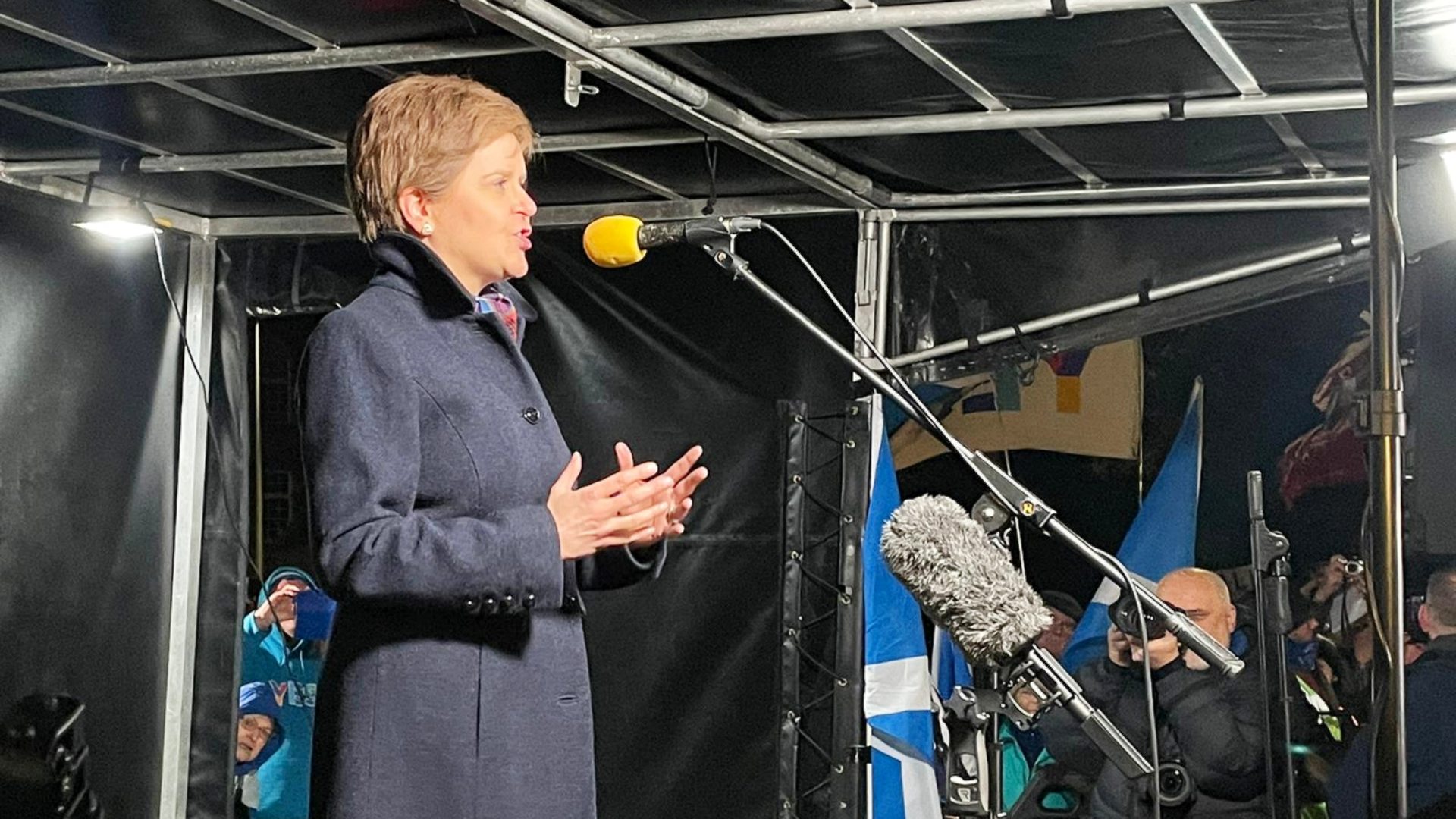 STV News
STV NewsThe folly of going to the Supreme Court to be told what she already knew (Holyrood is not sovereign on the matter of the UK constitution) has led her with a messy part two of Plan B.
Using the general election as a ‘de-facto’ referendum is constitutionally illiterate. Decreeing a general election is not about its prime purpose (electing a parliament) but about another issue altogether does not change a thing.
And even if 50% plus one of those who vote back pro-independence parties, why would Westminster accept that mandate when it has turned several blind eyes and deaf ears to several previous mandates?
Independence in UK terms amounts to a revolution, but the leader of the SNP is a safety-first politician who, by refusing to live dangerously, will anchor a legacy defined by pursuing a strategy which cemented the foundations of the status quo.
2023, I sense, will be a year when government north and south will be an exercise in playing an auld song. The narrative for Rishi Sunak and Nicola Sturgeon is unlikely to change.
This doesn’t matter so much for Sturgeon since there is not a Holyrood election on the horizon, although I sense that the next UK general election, due in 2024, will be her last act on the stage.
When Plan B fails, she will conclude that the independence campaign needs fresh leadership. Quite a lot of independence campaigners believe that is the case now.
Sunak will huff and puff, but I expect the pain of 2022 will intensify in 2023 and still be a factor in 2024.
Expect more Tories to announce they are standing down from parliament, knowing that their only certainty is a date with the electoral gallows.
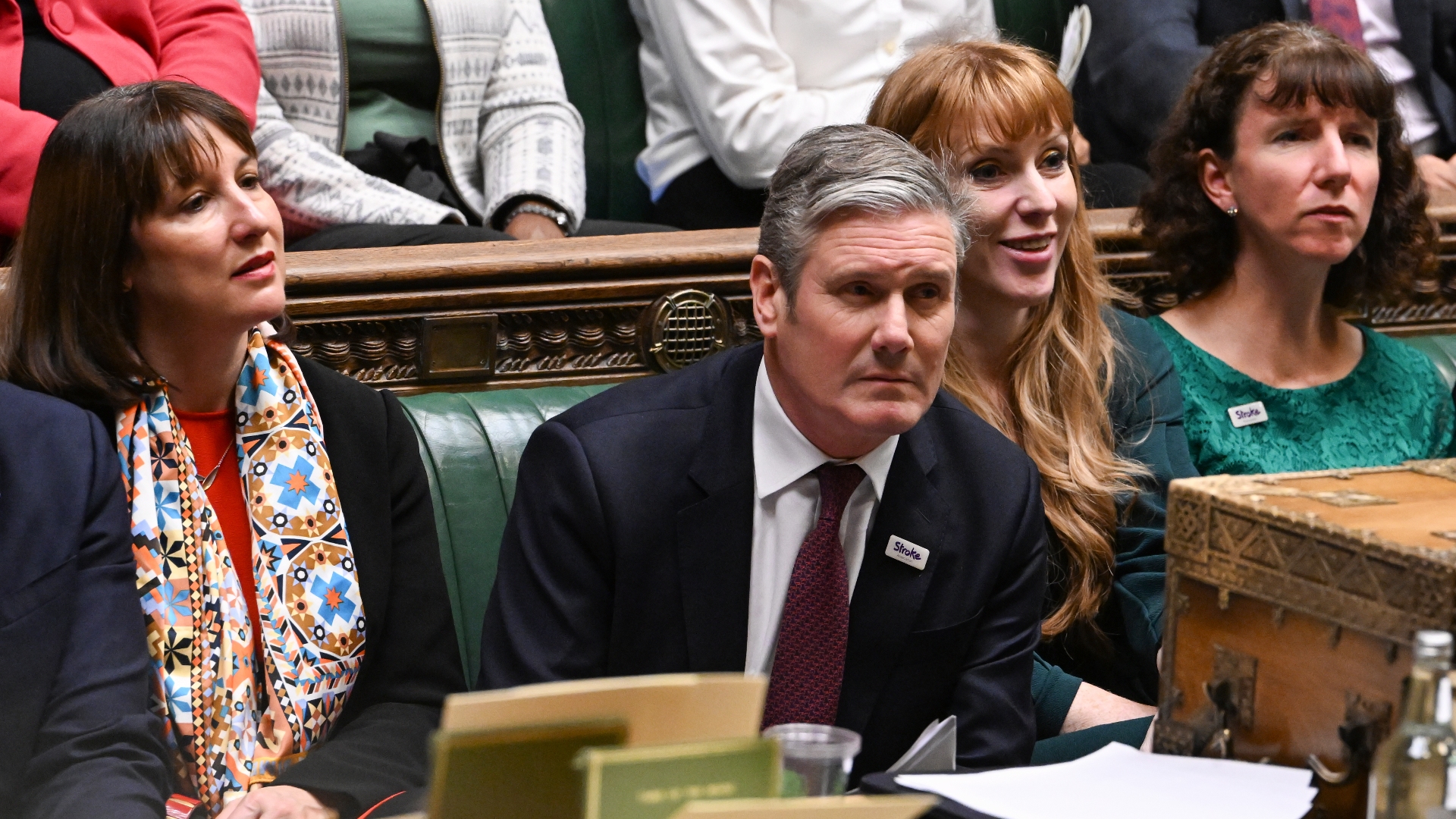 UK Parliament
UK ParliamentLabour has the advantage of not presiding over this unprecedented disaster for families and Sir Keir Starmer is a safe pair of hands.
But, like Nicola Sturgeon, he is a safety-first politician who is perhaps way too managerial for his own good.
Maybe it’s something about lawyers? I mustn’t go off piste on that or anything else.
When it comes, happy new year.
Follow STV News on WhatsApp
Scan the QR code on your mobile device for all the latest news from around the country


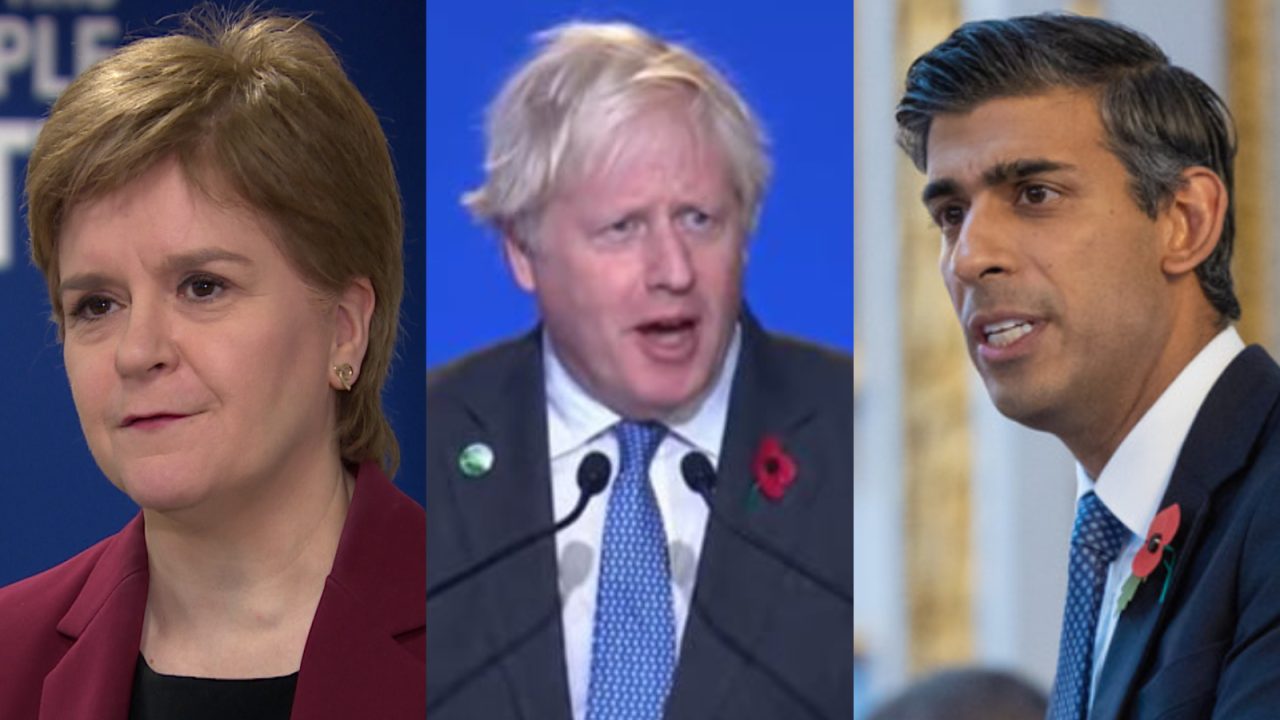 STV News
STV News




